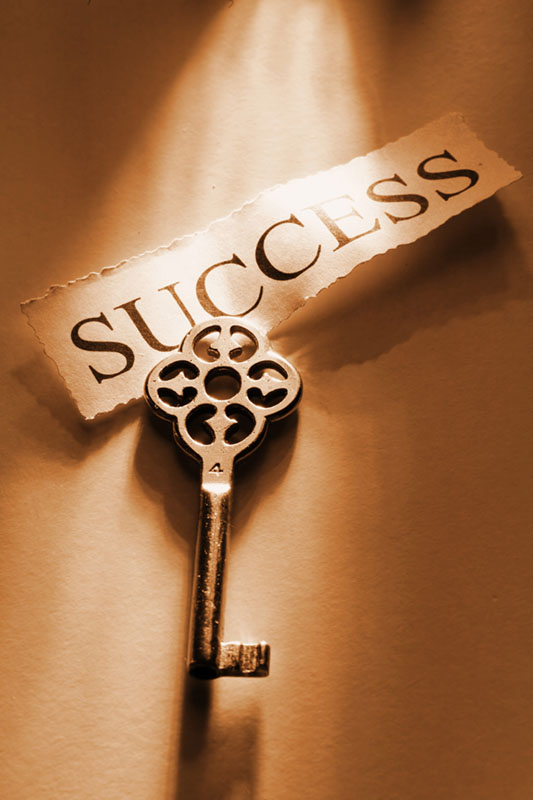
Success in sales does not go to the one who has the lowest price.
Nor does success in sales go to the one who has the best customers.
And, success in sales does not go the one who has the most intelligence.
Who really achieves success in sales? The people who practice integrity with every person with whom they come in contact. There is no substitute – no alternative – to consistent integrity.
Eleven years ago, I left my corporate career working in sales management for a Fortune 100 company. I began traveling the globe, working with salespeople across more industries than I can even begin to count. Over the years, I’ve personally met with thousands of salespeople, each with their own level of success and failures. I also have met with hundreds of sales managers, VPs of Sales, CEOs and others from the “C-Suite.” All those interactions and opportunities to learn about so many industries has revealed to me more than ever what it takes to remain at the top.
People who are at the top year in and year out are those who walk and breathe integrity in everything they do. This is true in good economic periods and bad economic periods, through global upheavals and company chaos. The consistent factor to success is not an external circumstance, but rather an internal commitment to a high level of integrity. These are the people who do not necessarily close every deal or land every new big hot account that comes along. However, in their actions and attitude, 365 days a year, they walk with integrity.
How would you define integrity? I would define it as adhering to strong moral and ethical standards, regardless of the situation or result of such commitment. In other words, integrity is not a commodity you can casually use when it benefits you, and carelessly throw aside when it doesn’t. Consistency is one of the hallmark signs of true integrity.
As a consultant for more than a decade, I have had the opportunity to watch several people over the course of not just weeks or months, but years. If you have been in sales a long time, you too have had the unique perspective of spotting the people others trust and want to follow. Sometimes this person holds official capacity as a leader, but often the “leader” is not high up in an organization. Regardless of a leader’s “official” position, they likely wield much influence because of their integrity.
Integrity starts with allowing yourself to be personally and publically accountable for everything you do and everything you think. In fact, integrity is more about holding yourself personally to a higher degree of accountability, because the real onus of integrity is how it guides you each day in your actions and activities. Accept 100% responsibility for how you carry yourself and do so with a high standard.
When it comes to strengthening integrity, here are some points to consider:
* No one can be forced to operate with integrity. It’s completely an internal choice that is reflected in external actions.
* It’s never too late to start. If you have struggled with integrity in the past, begin today to set a new course. In small ways and big ways, begin to line up your actions and attitudes with a strong moral and ethical standard.
* Accept the fact that you may not close every deal, because you are not willing to compromise your standards.
* The real measurement of integrity is what you do when nobody is looking and when nobody will ever find out what you have or have not done.
* Learn from those around you who live and breathe integrity. Become a student of their approaches and reactions – not just when the circumstances are good, but particularly when the circumstances are hard. As much as you can, surround yourself with these people. More than likely, they will not only have the highest degree of integrity, they will also be the most optimistic.
Whether you have been in sales a short time or for years, you owe it to yourself to achieve a level of success that is rooted in integrity. That kind of success cannot be matched. You will find yourself experiencing long-term success, and best of all, it will come in ways you least expect it.
About the Author:
Mark Hunter, “The Sales Hunter,” is a sales expert who speaks to thousands each year on how to increase their sales profitability. For more information, to receive a free weekly email sales tip, or to read his Sales Motivation Blog, visit www.TheSalesHunter.com. You can also follow him on www.Twitter.com (TheSalesHunter), on www.LinkedIn.com (Mark Hunter), and on his Facebook Fan Page, www.facebook.com (The Sales Hunter).
Category: Success Attitude

Recently, my colleague Lynda-Ross and I were discussing the validity of the idea that if you have a positive attitude, follow your passion, and do what you love then success and money will follow. My position generally was that the idea was valid; hers was that it was not.
The discussion arose during a seminar in which the main speaker ridiculed the idea and gave several examples to make her point. It got both of us thinking about it because following your passion and doing more of what you love and what you do best is part of the VRFT philosophy. As the discussion progressed it became apparent that the message meant one thing to me, another to Lynda-Ross, and yet another to the seminar speaker. So, I concluded that if three pretty smart people were confused then there was a good chance that others were confused as well.
The idea has been expressed in many different ways and there are many popularized versions of the message. Off the top of my head I come up with: Think and Grow Rich by Napoleon Hill, The Secret by Rhonda Byrne, Do What You Love and the Money Will Follow by Marsha Sinetar, The Prayer of Jabez by Bruce Wilkinson, and the popular film What The Bleep Do We Know. All are variations on the same theme.
The internet is full of discussion and debate both pro and con about whether or not doing what you love and following your passion will lead to money and success. I cannot speak for my colleague, the seminar speaker, or authors, both cited and un-cited, who have written books on the subject. But as the idea of Living Your Talents as a way to success is pretty important to what I do, I will express my ideas on the subject!
I think that the critique of this concept comes from three fallacies implied or stated:
* thought or attitude is the only necessary criteria for success,
* following your passion will make you successful, and
* doing what you love to do by itself will make you successful
Lets take them one at a time and examine what is left out.
Thought or attitude is the only necessary criteria for success.
This one is pretty obvious. Action is always required, as Jim Rohn says “After you have leapt about, there are some things that you must do.” Visioning success and having a positive attitude are important, but in order for things to happen we must also act. To paraphrase Goethe, too much reflection without experience drives us mad.
Following your passion will make you successful.
It all depends on what you mean by passion and how you follow it. Too many people confuse a passion for an external object or thing with an internal enthusiasm for a subject or activity that is skill and talent based. Following a passion for Brad Pitt or Johnny Depp is unlikely to result in success (unless you define charges of stalking as success!) while developing an innate skill for organization into a talent could lead to both success and money.
Doing what you love to do by itself will make you successful.
Beyond doing what you love to do you must evaluate failures and adjust, learn and develop new skills, and most importantly learn what is missing from your natural repertoire of skills and talents and find others who have those skills and can compliment yours.
Success and wealth are never guaranteed in any undertaking in life. There is no guarantee that using Your Talent Advantage will lead to success. But I do believe that pursuing activities that take advantage of skills and talents at which you are naturally gifted increases the odds of you doing the things described above which leads to success.
About the Author:
Gary Jordan, Ph.D., has over 27 years of experience in clinical psychology, behavioral assessment, individual development, and coaching. He earned his doctorate in Clinical Psychology from the California School of Professional Psychology – Berkeley. He’s the co-founder of Vega Behavioral Consulting, Ltd., a consulting firm that specializes in helping people discover their true skills and talents. www.vrft.com.

Have you ever been in a conversation where it was obvious the other person couldn’t wait for you to finish talking in order to say something? We all have I’m sure, and it’s not a great feeling.
You see, relationships are like lengthy conversations. There is a back-and-forth quality that needs to be there. If you focus only on what’s in it for you rather than what you can contribute, it’ll fall flat or end uncomfortably.
For any relationship to flourish and for personal growth to occur for both parties, you need to put some effort into understanding and meeting the other person’s wants and needs.
Often we hear what’s said, but we make sense of it from our own subjective reality. For example, the phrase, “I’ll call you soon,” may mean tomorrow for one person, but could mean sometime in the next month for another. People interpret their experiences differently and draw radically different conclusions from the same set of circumstances. It’s for this reason that misunderstandings and communication failures often spell doom for developing relationships and resentments for established ones.
Real success in life comes from the ability to understand differing perceptions and from understanding and accepting that others perceive the world differently than you do. It’s important to learn how to decipher the other person’s code and respond in kind.
First you need to be aware that not all people use the same code. Then, you have to be interested in learning what the other person’s code is. And finally, you‘ll want to practice using good communications skills – attentive listening, asking questions and checking for clarification.
TAKE ACTION:
Think about the last time you got into a disagreement with someone important to you. Did you feel heard? Were they (or maybe you) busy trying to make a point, or were they actively trying to listen to what you were saying?
Next time you catch yourself butting heads with someone, stop trying to make your case. Make a point of pulling back and actually hearing the other person’s point of view. Ask questions to help you get clear, stay engaged and then take your turn to share your point of view.
Stretching your understanding of different points of view is key to improving communication, limiting conflict with others, and building strong relationships. Limiting conflict with others will give you more time for constructive interaction, enjoyable relationships, and will decrease the stress in you life.
About the Author:
Gary Jordan, Ph.D., has over 27 years of experience in clinical psychology, behavioral assessment, individual development, and coaching. He earned his doctorate in Clinical Psychology from the California School of Professional Psychology – Berkeley. He’s the co-founder of Vega Behavioral Consulting, Ltd., a consulting firm that specializes in helping people discover their true skills and talents. www.vrft.com

You’ve probably heard the phrase, “You can do anything you want to if you just put your mind to it!” at least once in your life.
That statement is altogether misleading and unfairly forces many of us to believe that we should follow through no matter how unhappy the tasks or position makes us. The trouble is human beings are, by creation, gifted differently. Nobody excels at everything.
For most of us, this is obvious and easy to accept in some areas, and more difficult to face in others. For example, it’s easier for most of us to recognize that no matter how much we practice, we’ll never play golf like Tiger Woods than it is to acknowledge that we’ll never learn how to be the life of the party like Cousin Joe.
Having a successful life, one full of meaning and fulfillment requires not only knowing your gifts and talents, but also knowing your limitations. In other words knowing what you cannot do is just as important as knowing what you can. Identifying those things that you aren’t good at – you know the things that make you feel unhappy and leave you feeling unfulfilled is the first step to finding life success and fulfillment. Because when you waste your natural abilities you often feel stuck doing something you hate – weed those skills out.
I invite you to go one step further – learn to celebrate your limitations!
This allows you to focus your time and effort on pursuits, behaviors, careers and life directions that are supported by your natural gifts and talents. It also opens you up to experiencing the appreciation and joy that come from discovering the gifts and talents that others bring to your life. When we are doing what we love, we are often performing at our best. This leads to a kind of fulfillment that allows us to live life passionately and happily.
Next time you’re invited out with friends, instead of trying to be like Cousin Joe, consider what it is that you uniquely bring to the party – what you are most comfortable doing – and do more of that! Most of us have undeveloped talents that lie hidden inside us until they’re recognized and acted upon. Each of our talents is an opportunity waiting to happen. Celebrate the fact that you don’t have to take on the stress of being like Joe (he’s got it handled) and you are free to be you and enjoy yourself!
About the Author:
Gary Jordan, Ph.D., has over 27 years of experience in clinical psychology, behavioral assessment, individual development, and coaching. He earned his doctorate in Clinical Psychology from the California School of Professional Psychology – Berkeley. He’s the co-founder of Vega Behavioral Consulting, Ltd., a consulting firm that specializes in helping people discover their true skills and talents. www.vrft.com
Life Success in 3 Steps

We all recognize that the growth that takes place between birth and ages 18 to 21 are pretty dramatic. But physical, emotional and intellectual development continues throughout your life even if the changes are less noticeable.
One of the most exciting areas of adult development – and one that is the key to true success in life is in the area of skills and roles. In other words, what do you want to spend your time doing, both at work and at play?
Just like a 10-month-old baby learning to crawl, stand, and finally walk, success in life comes from the ability to master the skills necessary to accomplish your goals.
Successful adult development is a multi-step process:
1) Assessing your range of behavioral skills to decide how well a role or job fits your perceptual style
2) Making a conscious effort to drop those tasks and roles that don’t make use of your gifts and talents
3) Making a conscious effort to do more of the ones that do
What’s especially important in this process is distinguishing between those skills that fit you naturally versus those where you had to work hard to acquire that drag on your emotional, psychological and physical well-being.
Most of us keep doing what we’ve always been doing. It’s human nature, after all. We all know how hard it can be to “break” a habit. So, having a clear plan for the specific behaviors and skills you want to develop is important. That way you give yourself something positive to replace the old, no-longer-wanted behaviors.
Pick a goal you have and ask yourself:
* Will this bring me closer to my definition of success?
* What skills does it require?
* What’s my plan for learning the required skills I may not have fully developed yet?
You have abilities for which you have innate potential that are just waiting to be used. They may require some hard work, but you will find that efforts spent on developing your talents are productive, meaningful and rewarding.
In order to master the skills necessary to accomplish your goals it’s important to consciously choose to do more of what you do best. Each of us is born with a unique set of natural skills. The challenge we all face is recognizing and developing those skills to their fullest potential. Give some serious thought to what you do well and what you truly love to do. Then look for opportunities to do those things more often.
About the Author:
Lynda-Ross Vega: A partner at Vega Behavioral Consulting, Ltd., Lynda-Ross specializes in helping entrepreneurs and coaches build dynamite teams and systems that WORK. She is co-author of Vega Role Facilities Theory, a revolutionary psychological assessment system that teaches people how to unleash their deepest potentials for success. For free information on how to succeed as an entrepreneur or coach, create a thriving business and build your bottom line doing more of what you love, visit www.VRFT.com